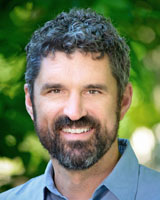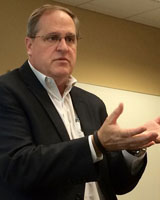Friday, January 21, 2022
10:00am – 11:30pm
The future of mobility is dynamic – new advancements are happening every day. Increasing funding and emphasis on electric vehicles will have a direct impact on the State’s economy by expanding much needed educational infrastructure to engage, reskill/upskill and educate more students at all levels, while also supporting innovation in essential areas: advancing the state-of-the-art for range and charging; transforming the capabilities for future battery packs through research on new materials, manufacturing methodologies; etc. The University of Michigan has a robust track record of collaboration and partnership that lead to high value outcomes. A strategic investment is critical for positioning the State of Michigan as the leader in EV related research and workforce development, and ensuring the State’s competitiveness and leadership position in the future of mobility for the near- and long-term.
The Challenge We Face
Almost fifty years ago Michigan’s auto industry faced a serious challenge, as demand increased for smaller, imported vehicles. It hasn’t been easy and it has taken a long time, but with research and innovation, strategic partnerships, engineering and talent, today’s auto industry is strong. Michigan is now facing another inflection point, a key moment in time. Vehicle electrification represents another generational shift in the mobility industry. Michigan’s existing auto industry is vulnerable. The state is at a critical crossroads that will need to educate nearly 15 percent of the workforce, re-purpose our manufacturing sector while enhancing our research infrastructure.
Panelists

Jeff Sakamoto
Professor of Mechanical Engineering, Materials Science and Engineering, and Macromolecular Science and Engineering
As a materials scientist and engineer with an interest in synthesis, processing, and functionalization of ceramics and hydrogels, his research is highly interdisciplinary guided by the fields of energy storage/conversion and biomedicine.

Greg Less
Director of the University of Michigan Battery Lab
Greg Less is the Senior Laboratory Manager at the UMEI Battery Fabrication and Characterization User Facility, responsible for the day-to-day operation of the laboratory. Less received a doctorate in Chemistry from the University of Michigan. Prior to joining UMEI, he was a research scientist with battery companies T/J Technologies and A123 Systems.
Wolverine Caucus members are University of Michigan alumni including legislators, lobbyists, staff, and advisors working in and around the State of Michigan government. They meet with U-M experts on timely, relevant public policy subjects during the legislative session. Our mission is to provide diverse forums at which U-M friends can meet one another, enjoy fellowship, exchange views and learn from the world-class talents of U-M faculty and administrators.


 Jon Allan
Jon Allan
 Maria Muzik MD, MSc
Maria Muzik MD, MSc Amy Zaagman
Amy Zaagman Lynette Beiry
Lynette Beiry